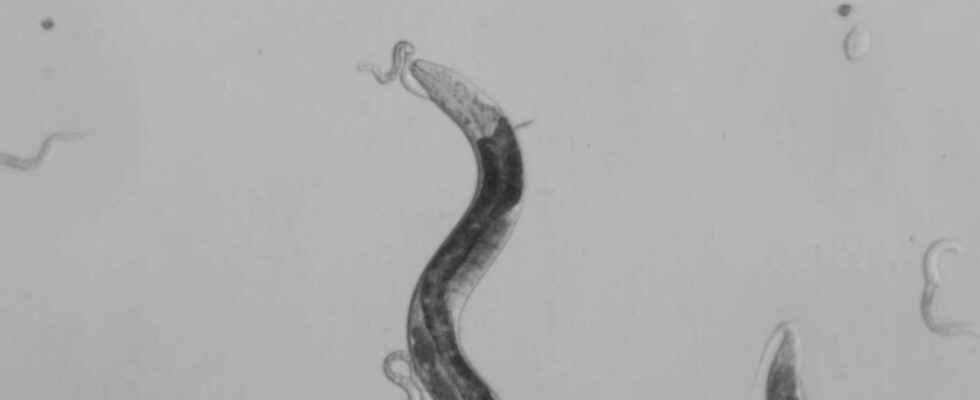“Beasts of science” is like a collection of stories. Beautiful stories that tell the living in all its freshness. But also in all its complexity. A parenthesis to marvel at the treasures of the world. For this new episode, let’s discover a funny animal, invisible to the naked eye: a roundworm.
You will also be interested
[EN VIDÉO] Algorithms and their decision making Increasingly, algorithms are replacing human beings in decision-making or task performance. They take into account a number of parameters but the question of the transparency of the algorithms arises: can they explain their decision?
If I tell you ver, like earthworm, you know what animal I’m talking about. This unsavory beast, with a soft and flexible body. Not very appetizing, but whose role is essential for our soils. Because the worms dig galleries there which allow them to be aerated and to make the water circulate more easily, for example. But you can imagine, all this is not voluntary. Worms remain animals, let’s say… “primitives”. And it’s hard to imagine them endowed with any form ofintelligence. Difficult ? It did not take less for researchers to take an interest in the case of a particular worm.
the Pristionchus pacificus is of those called roundworms. A nematode, more exactly. Finally like 4/5 of the animals that inhabit our Earth. It is even a free-living nematode. It is therefore not one of those who can interfere with us. And provoke in us some gastrointestinal disorders troublesome.
It should however be noted that the Pristionchus pacificus may adopt behaviors that seem strange to us. At least. For example, he likes to live alongside beetles. When they die, the nematode takes the opportunity to devour everything that will begin to swarm in their remains. Because he appreciates both bacteria than fungi.
Bite to kill or to drive away, you have to choose
It is this particularity that the researchers have explored. Wondering if Pristionchus pacificus is able to make informed choices when it comes to eating. Informed choices for this animal which has just over 300 neurons ? Even though we sometimes have difficulty getting there with our 86 billion nerve cells? Let’s see…
The story involves a second protagonist. Her name, Caenorhabditis elegans. A small worm about a millimeter. A nematode, too, and Pristionchus pacificus sees as prey. At least, quite clearly, as far as the larvae of Caenorhabditis elegans. Our roundworm kills and devours them easily. In one bite. On the other hand, he has more difficulty with adults. For which its bites are usually not fatal.
So why Pristionchus pacificus persist in attacking these worms once they have reached their adult size? Researchers tell us that it only does so when it has a completely different target in view. From bacteria which also feeds Caenorhabditis elegans. It therefore attacks it more to protect its territory and keep it away from a potential source of food than in the hope of enjoying it.
Worms are great at sensing and decision-making. Here is a population of Caenorhabditis elegans choosing between one of the two sources of food (bacteria) within 10 minutes. What drives the worms? Taste, smell, something else? pic.twitter.com/AtP1EctQ4m
— Varsha Singh PhD (@VarshaS53228024) January 29, 2022
Until then, scientists imagined that Pristionchus pacificus only biting for the purpose of predation. But these observations show that this little worm was hiding its game well. It seems capable of weighing the costs and the advantages of an action – the bite – implemented to achieve different objectives. To finally make the best decision for him.
So the basic principles of decision making could ultimately be easier to code, biologically speaking, than researchers thought. It remains to be understood to what extent this codingis done in the brain, what are its molecular underpinnings and how flexible it can be. But in the meantime, we have to admit that Pristionchus pacificus is not so stupid!
Interested in what you just read?
